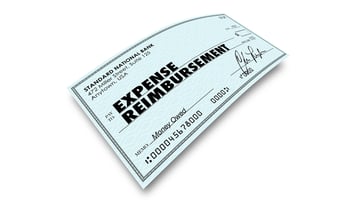 In the wake of the COVID-19 pandemic, the Employee Retention Credit (ERC) emerged as a vital financial lifeline for businesses. However, as the IRS intensifies its scrutiny of ERC claims, it has unveiled five new warning signs that businesses must heed to avoid costly mistakes. Understanding these red flags is crucial for maintaining compliance and safeguarding your business from audits, penalties, and interest.
In the wake of the COVID-19 pandemic, the Employee Retention Credit (ERC) emerged as a vital financial lifeline for businesses. However, as the IRS intensifies its scrutiny of ERC claims, it has unveiled five new warning signs that businesses must heed to avoid costly mistakes. Understanding these red flags is crucial for maintaining compliance and safeguarding your business from audits, penalties, and interest.
The Rise of Incorrect ERC Claims
The ERC was created to help companies that paid their workers even when they had to close due to pandemics or saw sharp drops in their gross earnings. Regretfully, a number of firms have been duped by pushy promoters into believing they are eligible for this credit when they are not. By emphasizing typical mistakes, the IRS's latest notice seeks to shield companies from such risks.
Five New Warning Signs
1. Essential Businesses Claiming ERC: Claiming the ERC was persuaded of several vital enterprises that continued to function throughout the epidemic. But in order to be eligible, a government order is usually needed, requiring a complete or partial halt of activities. To make sure they are in compliance, businesses need to review their claims.
2. Insufficient Proof of Suspension: Companies must present sufficient proof of how a governmental order completely or partially stopped their activities. Claims could be considered invalid without this evidence.
3. Family Members' Wages: Claims about salaries provided to family members are frequently untrue. To prevent errors, business owners should confirm that these wages are not included in their claims.
4. Overlap with PPP Loan Forgiveness: Paycheck Protection Program (PPP) salaries are not eligible for the Earned Interest Credit (ERC). For the purpose of avoiding this frequent mistake, businesses should examine their files.
5. Large Employers' Service Wages: Only salaries given to non-service-producing employees qualify for the ERC for large firms. Wages for current workers are probably not included in claims.
Avoiding Common Pitfalls
The IRS has already issued warnings to firms for several matters, including but not limited to, overly frequent quarter claims, inaccurate employee counts, and non-qualifying government orders. These new warning indicators are just one of the many problems that may arise. Promoter who minimizes the dangers of false claims should also be avoided by businesses.
Taking Action
It is advised that companies get advice from reputable tax experts in order to manage these issues. If mistakes are found, the IRS has a mechanism for withdrawing claims as well as a second ERC Voluntary Disclosure mechanism so that false claims can be corrected without facing serious consequences.
Next Steps
Businesses need to be aware and on guard as the IRS continues to hone its monitoring of the ERC. You can make sure your ERC claims are correct and compliant and shield your company from future audits and fines by being aware of these warning indicators and taking appropriate action. Please contact our office with any inquiries if you would want professional advice and peace of mind.


